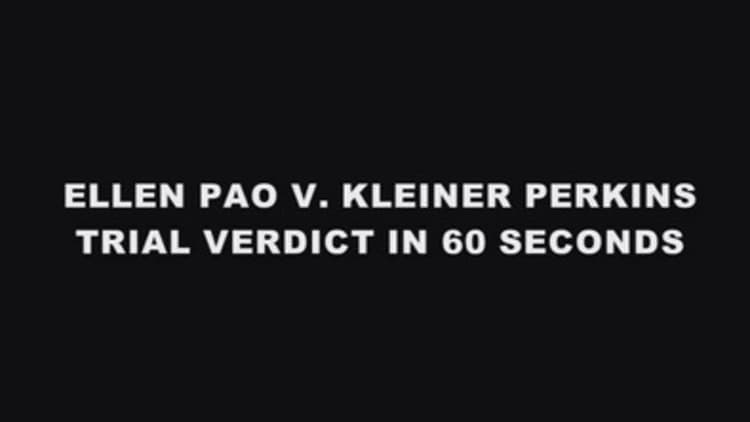Google may very well be the most disruptive company of the past century.
Beyond just creating the ubiquitous front page to the Internet and upending traditional advertising, the Web giant is at the center of cloud, mobile and wearable computing and increasingly helping shape the future of transportation, energy, education and science.
By the looks of CNBC's Disruptor 50 list, Google's influence has plenty of staying power. On our third annual ranking of the most innovative technology companies, the search engine's fingerprints are everywhere, particularly when looking at who funds the disruptors.
Not only is Google itself among the most prominent dealmakers on the list, but so are the company's early backers. (Tweet this) Kleiner Perkins Caufield & Byers, which invested in Mountain View, California-based Google in 1999, is behind 15 of the 50 disruptors, more than any other firm. Next with 12 is SV Angel, whose founder Ron Conway was an angel investor in Google.
"Anyone remotely associated with it had some of the fairy dust rub off on them," said Lise Buyer, an IPO consultant who worked at Google and helped guide its initial share sale in 2004. "It was such a large, high-profile win at the time."
Read MoreIn online ads, Google, Facebook and then who?
Also among the top firms with the most disruptors are Sequoia Capital, which invested in Google alongside Kleiner Perkins, and Khosla Ventures, founded by Vinod Khosla, a partner at Kleiner Perkins at the time of the Google deal. Those firms have seven and six start-ups on the list, respectively.
Google, including its venture arm and later-stage investing group, has nine companies in the group, tied for third with Goldman Sachs and one ahead of Andreessen Horowitz.
Disruptor investors
| Investor | # of disruptors | Deals include |
| Kleiner Perkins | 15 | Bloom, Dollar Shave Club, Slack |
| SV Angel | 12 | Aibnb, Coinbase, Dropbox |
| Google (+Ventures) | 9 | Nextdoor, SpaceX, Uber |
| Goldman Sachs | 9 | Motif, Nutanix, Spotify |
| Andreessen Horowitz | 8 | GithHub, Pinterest, Quirky |
| IVP | 7 | Klarna, Personal Capital, SoFi |
| Founders Fund | 7 | Oscar, Palantir, Twilio |
| Sequoia | 7 | Hearsay, Houzz, Square |
| NEA | 7 | Intarcia, MongoDB, SugarCRM |
| Greylock | 6 | Pure, Synack, Wealthfront |
| GGV | 6 | DraftKings, GENBAND, Square |
| Khosla | 6 | Airbnb, Hampton Creek, Oscar |
The Disruptor 50 is a list of the venture-backed companies deemed most likely to unseat industry incumbents.
Just as Google turned the advertising industry on its head by creating efficient and measurable marketing online, and how it then took desktop applications and let consumers work in the cloud, the companies on CNBC's list are vying to uproot household names through a combination of technology and business-model innovation.
As much influence as Amazon.com, Apple, Facebook and Microsoft have in the technology world today, Google's tentacles spread the farthest and widest. Several companies on the disruptor list, including Pinterest, Hearsay Social and Nutanix, have Google alumni on the founding teams.
"They're the monster," said Salman Ullah, who led corporate development at Google from 2004 to 2007 before co-founding venture firm Merus Capital in Palo Alto, California. "No one has been able to get close."
Read MoreHow the four horsemen of tech stack up
As an investor, Google has turned into a powerhouse in just a few short years. Google Ventures (GV), which typically backs young start-ups, was founded in 2009 and has about $300 million a year to invest. Google Capital, the company's late-stage investing arm, said in early 2014 that it had about the same amount to put to work for the year.
That's still a small fraction of the $9.8 billion Google spent on research and development last year, accounting for 15 percent of revenue.
Google Ventures investments that made the list include local social site Nextdoor, mobile collaboration app Slack and security company Synack.
Read MoreGoogle Ventures has eye for health-care firms
"GV is itself a big, bold bet by Google," said Bill Maris, a managing partner at Google Ventures. "The same aspirations that drive Google to take big chances and think long term is the same vision that is shared by Google Ventures and our portfolio companies."
For Kleiner Perkins, showing up as the top investor on the list is a sign that the John Doerr-led firm still has a healthy amount of mojo despite a tumultuous stretch from a legal and public relations standpoint.
In March, Kleiner Perkins wrapped up a three-year defense of a gender discrimination suit filed by former partner Ellen Pao. The firm won the case, but not before many sensitive details were exposed on the challenges women face in the male-dominated venture business.

Even before the suit, Kleiner Perkins endured some rough years as an investor. On the heels of the Google windfall, the firm went all in on clean tech and was behind some of the most spectacular flops, like electric-car maker Fisker and solar-panel developer MiaSolé.
All the while, rival firms Accel Partners, Greylock Partners and, of course, Sequoia were celebrating early bets in social networking, e-commerce and enterprise software.
On the Disruptor 50 list, Kleiner Perkins has one green company, Bloom Energy, and the rest are all over the tech map. They include very early money in subscription shaving service Dollar Shave Club and security company Synack and high-priced investments in Snapchat, Spotify and Slack.
Read MoreShaving wars pit tech start-ups against Gillette
"Kleiner's Series A and Series B investments have been good for the duration," said Paul Martino, a partner at venture firm Bullpen Capital and founder of a company that was backed by Kleiner Perkins in 2006. "Investments outside their core expertise have not done as well."
And nothing has done as well as the $25 million that Kleiner Perkins and Sequoia put into Google in 1999, an investment that netted billions in gains.
Prior to the big firms getting involved, Ron Conway put some cash into the fledgling search start-up. The 64-year-old legend of angel investing also backed PayPal, Facebook and Twitter, along with scores of other big successes and plenty of tremendous flops.
Conway's early-stage venture firm, SV Angel, was co-founded by former Google executives David Lee and Brian Pokorny. The group's 12 investments on the disruptor list include Airbnb, Dropbox, Pinterest and bitcoin wallet Coinbase.
Unlike a typical venture firm, SV Angel's goal is to make tons of small investments in early-stage companies, knowing that many will fail, but those that become billion-dollar companies will cover up the write-offs.
Others have tried to mimic that strategy, to no avail.
"Only Ron Conway, who knows everybody and puts a couple bucks in everything, can make that work," Martino said. "Trying to replicate that strategy for anybody else is suicide."
Correction: An earlier version of this story had the wrong number of investments for Google, Kleiner and SV Angel.







